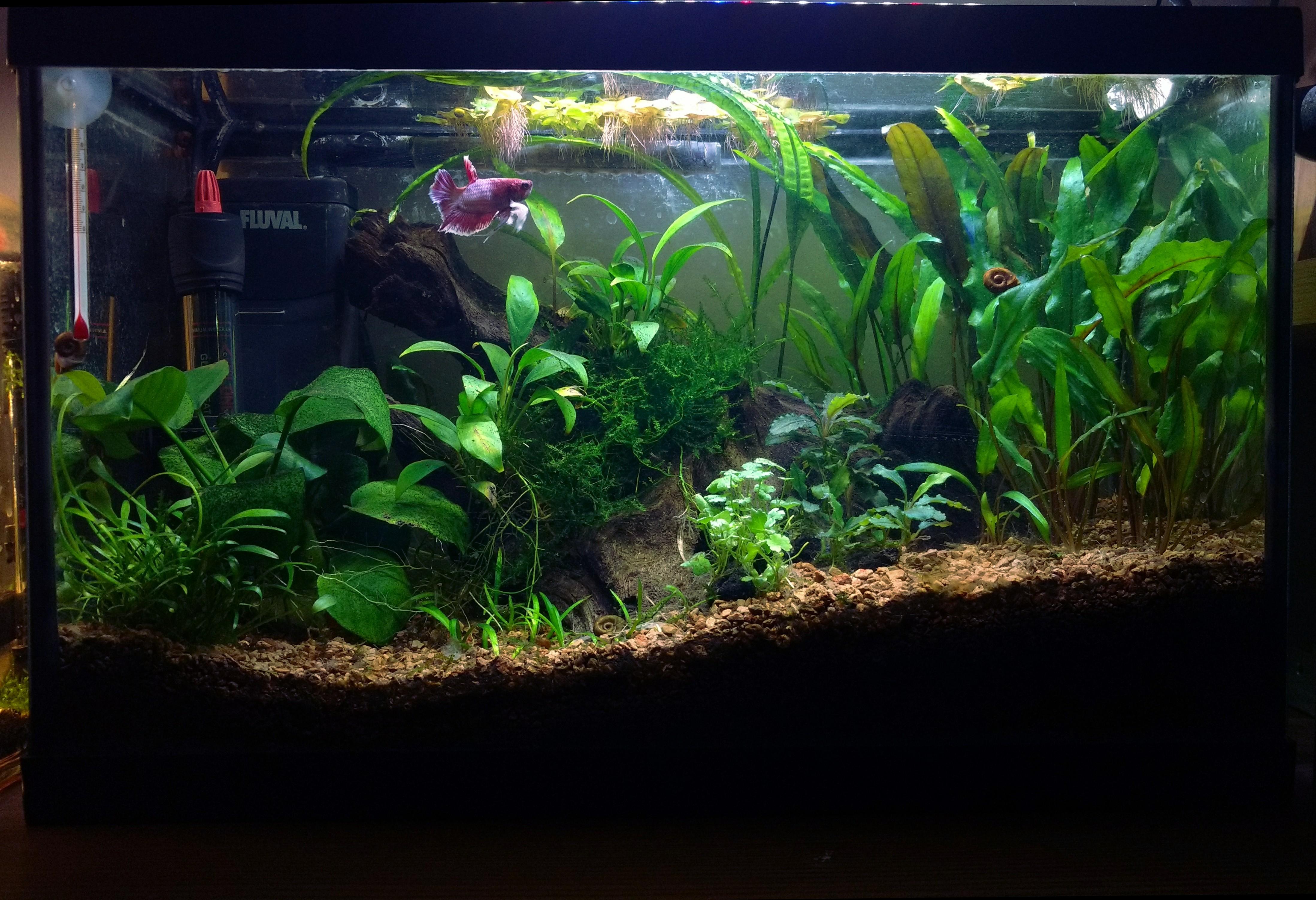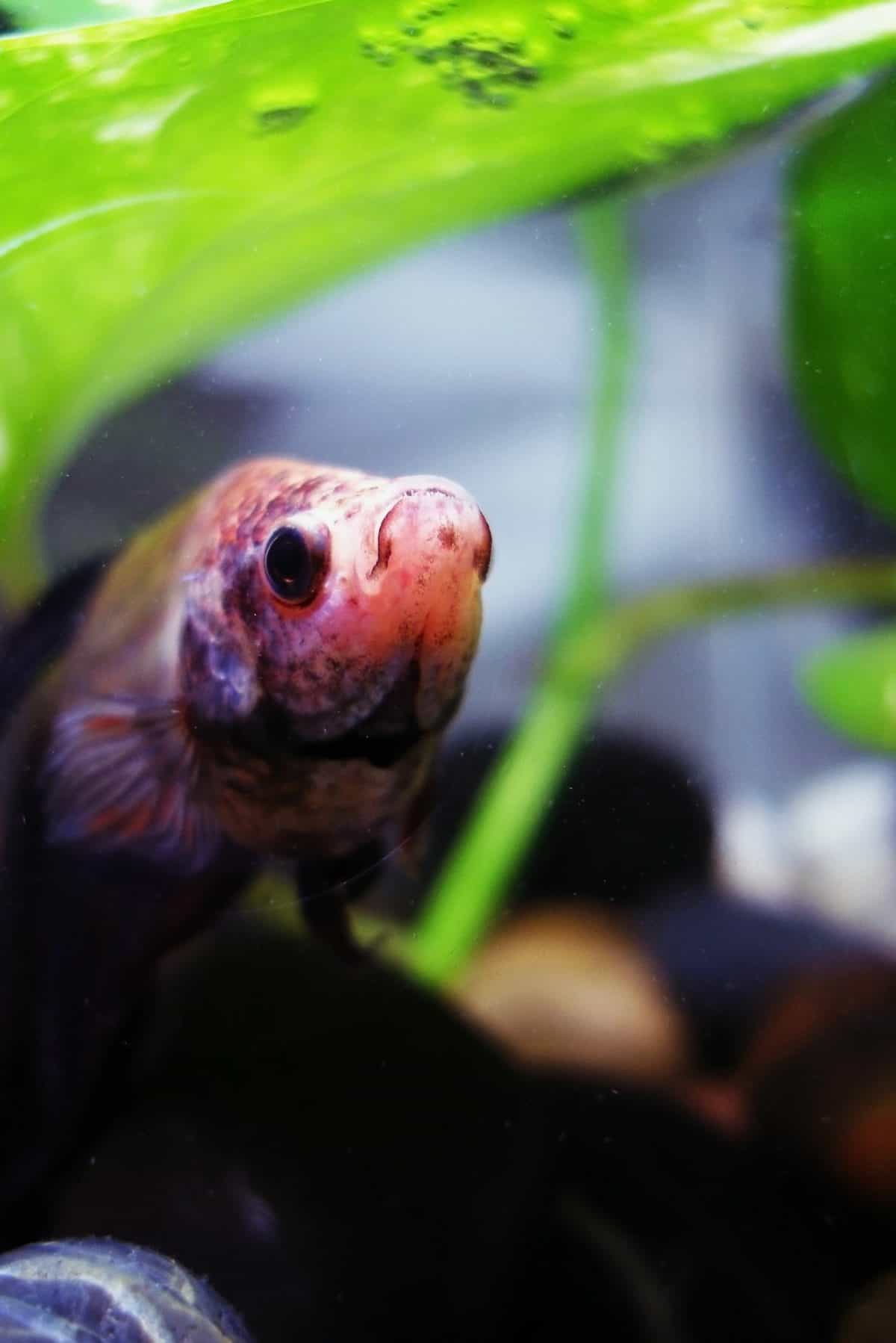If you’re a Betta fish owner, you know how important it is to maintain a healthy environment for your fish. One topic that has been gaining attention in the Betta fish community is the use of duckweed as a food source and a natural way to improve water quality in their tanks.
Duckweed is a small, floating plant that can reproduce quickly and cover the surface of the water. But is duckweed really good for Betta fish? In this article, we will explore the benefits and potential drawbacks of using duckweed in your Betta fish tank.

Is Duckweed Good for Betta Fish?
Duckweed, a small aquatic plant that floats on the surface of the water, has been gaining popularity among aquarium enthusiasts as a natural and nutritious food source for betta fish. But is it really good for them? Let’s explore the benefits and drawbacks of feeding your betta fish duckweed.
Benefits of Feeding Betta Fish Duckweed
Duckweed is a rich source of nutrition for betta fish. It contains high levels of protein, vitamins, and minerals that are essential for their growth and overall health. In fact, duckweed is considered one of the most nutritious foods for fish, as it contains all the essential amino acids that they need to thrive.
Feeding your betta fish duckweed also has other benefits. It can help to improve their digestion and reduce the risk of constipation, which is a common problem in betta fish. Duckweed is also a natural source of fiber, which can help to keep your betta’s digestive system healthy.
If you’re looking for a natural and cost-effective food source for your betta fish, duckweed is definitely worth considering. It’s easy to grow and maintain, and your betta fish will love it.
Drawbacks of Feeding Betta Fish Duckweed
While there are many benefits to feeding your betta fish duckweed, there are also some drawbacks to consider. One of the main drawbacks is that duckweed can quickly overtake your aquarium if not properly managed. It reproduces rapidly and can form a thick mat on the surface of the water, which can block out light and oxygen.
Another potential issue with feeding your betta fish duckweed is that it can be contaminated with harmful bacteria and parasites. If you’re not careful about where you source your duckweed from, you could inadvertently introduce diseases into your aquarium.
Finally, some betta fish may not like the taste of duckweed. While most bettas will happily eat it, some may be picky eaters and prefer other types of food.
Benefits of Duckweed vs Other Foods
Compared to other types of fish food, duckweed has several advantages. Firstly, it’s a natural and sustainable food source. Unlike commercial fish food, which is often made from processed and artificial ingredients, duckweed is a whole food that’s packed with nutrients.
Duckweed is also more affordable than many other types of fish food. It’s easy to grow at home, so you can save money on expensive commercial fish food.
Finally, duckweed is a versatile food that can be fed to a wide range of fish species, including betta fish, goldfish, and koi. This makes it a great option if you have multiple types of fish in your aquarium.
Conclusion
In conclusion, duckweed can be a great addition to your betta fish’s diet. It’s a natural and nutritious food source that can help to improve their overall health and wellbeing. However, it’s important to be mindful of the potential drawbacks, such as overgrowth and contamination, and to manage your duckweed carefully.
If you’re considering feeding your betta fish duckweed, it’s worth starting with a small amount and monitoring their reaction. If they enjoy it and don’t experience any negative side effects, you can gradually increase the amount you feed them. With proper care and attention, duckweed can be a fantastic addition to your betta fish’s diet.
Frequently Asked Questions
Is Duckweed Good for Betta Fish?
Yes, duckweed is a great addition to a Betta fish’s diet. In fact, many Betta keepers use duckweed as a dietary supplement for their fish. Duckweed is high in protein, vitamins, and minerals, making it a nutritious food source for Betta fish. Additionally, duckweed can help to improve the water quality in your Betta’s tank by absorbing excess nutrients and waste.
However, it’s important to note that duckweed should not be the sole source of food for your Betta fish. While it is nutritious, it doesn’t provide all of the nutrients that your Betta needs to thrive. So, be sure to supplement your Betta’s diet with other types of food, such as pellets or frozen foods.
How Much Duckweed Should I Feed My Betta Fish?
The amount of duckweed you should feed your Betta fish will depend on a few factors, such as the size of your fish and the size of your tank. As a general rule, you should aim to feed your Betta fish a small amount of duckweed once or twice a week. This will provide them with the nutritional benefits of the plant without overloading their diet.
If you notice that your Betta fish is not eating all of the duckweed you offer them, you may want to reduce the amount you’re giving them. It’s important to avoid overfeeding your Betta, as this can lead to health problems and water quality issues in your tank.
How Do I Add Duckweed to My Betta Fish’s Tank?
Adding duckweed to your Betta fish’s tank is easy. Simply take a small amount of duckweed and place it on the surface of the water in your tank. The duckweed will float on top of the water, providing your Betta with an easy-to-reach food source.
It’s important to note that duckweed can grow quickly and may cover the surface of your tank if left unchecked. To prevent this from happening, you can remove excess duckweed from your tank periodically or add some aquatic snails to your tank to help control the growth of the plant.
Can Duckweed Harm My Betta Fish?
No, duckweed is not harmful to Betta fish. In fact, it can provide many nutritional benefits for your fish. However, as with any type of food or plant, it’s important to monitor your Betta’s behavior and health after adding duckweed to their diet.
If you notice any changes in your Betta’s behavior or health, such as lethargy, loss of appetite, or discoloration, it’s important to remove the duckweed from your tank and seek advice from a veterinarian or experienced Betta keeper.
Where Can I Buy Duckweed for My Betta Fish?
Duckweed can be purchased from many online retailers that specialize in aquatic plants and fish supplies. Additionally, some local fish stores may also carry duckweed for sale.
Before purchasing duckweed, be sure to research the seller and read reviews from other customers to ensure that you’re getting a high-quality product. It’s also important to quarantine any new plants before adding them to your Betta fish’s tank to prevent the introduction of harmful pests or diseases.

Adding Duck Weed To The Betta Tanks
In conclusion, the question of whether duckweed is good for betta fish is a complex one. While there are many benefits to using duckweed in your betta’s tank, such as providing a natural food source and improving water quality, there are also potential downsides to consider.
First and foremost, it’s important to ensure that your betta is receiving a balanced diet that includes a variety of foods. While duckweed can be a nutritious addition to their diet, it should not be the sole source of food.
Additionally, duckweed can quickly take over a tank if not properly managed, potentially causing harm to your betta and other aquatic life. It’s important to monitor the amount of duckweed in your tank and remove excess growth as needed.
Overall, when used responsibly, duckweed can be a great addition to your betta’s environment. However, it’s important to weigh the benefits and potential drawbacks before making a decision. Consult with a veterinarian or experienced aquarist if you have any concerns about introducing duckweed to your betta’s tank.

